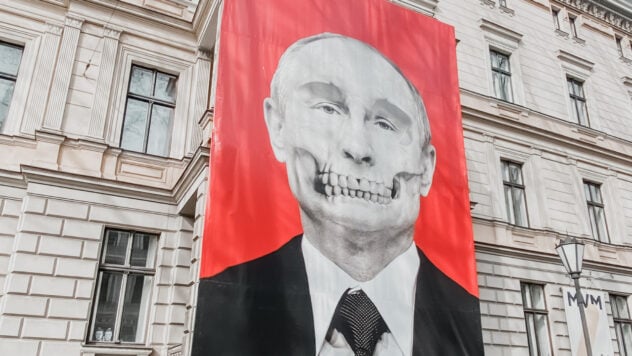
Russian dictator Vladimir Putin has withstood all Western efforts to stop his all-out war in Ukraine. The dictator's regime is firmly in place, and therefore the United States and its allies need a new long-term containment strategy.
The American newspaper The Wall Street Journal writes about this.
Eugene Rumer, a former Russia affairs officer at the US National Intelligence Council, and Andrew Weiss, who worked on Russian affairs in the administrations of Presidents George W. Bush and Bill Clinton, write that Putin has every reason to believe that “time is on his side.”
Currently watching
The Russian economy has undergone shocks, but it has not been completely destroyed. Putin's power has, paradoxically, been strengthened since Yevgeny Prigozhin's failed coup in June, and popular support in Russia remains strong, as does Russian elites.
Countries such as Armenia, Georgia, Kyrgyzstan and Kazakhstan have made huge profits by serving as sanctions evasion tools and transhipment points for goods that Russia previously imported directly.
Despite an International Criminal Court indictment against Putin and ample evidence of Russian war crimes in Ukraine, the dictator still enjoys support in parts of the so-called Global South.
The newspaper writes that the war in Ukraine is not a big deal for many countries, which are outraged by what they perceive as double standards from the United States and Europe.
More than six months before the full-scale invasion of Ukraine, Putin signed a new Russian National Security Strategy. The main emphasis in the document was on preparing the country for a long-term confrontation with the West. Today Putin can tell the nation that his strategy is working.
Want to rest? Come to Facti.GAMES!
“Putin is not under any pressure to end the war and is not worried about his ability to maintain it more or less indefinitely. As winter approaches, the Russian army has conducted a limited ground offensive and will undoubtedly expand missile and drone attacks on Ukrainian cities, power plants, industrial facilities and other critical infrastructure, the newspaper writes.
Putin expects that U.S. and European support for Ukraine will wane, that Ukrainians will tire of the endless terror and destruction inflicted on them, and that the combination of these two factors will allow him to dictate the terms of an agreement to end the war and claim victory. From his point of view, the ideal person to conclude such an agreement would be Donald Trump.
It is noted that this state of affairs creates an unprecedented challenge for Western leaders. Washington and its allies have been remarkably effective in addressing the most pressing aspects of the problem: preventing the collapse of Ukraine, providing it with modern weapons and real-time intelligence, and developing sanctions against Russia.
“But now is the time to move on to a long-term strategy that will increase and maintain pressure on the Kremlin regime. There should be no illusion that any combination of short-term steps will be enough to force Putin to abandon the war, write Rumer and Weiss.
They note that Western leaders have erroneously failed to tell their citizens about the long-term nature of the threat from an emboldened, revisionist Russia.
The authors write that Western leaders have “too often resorted to magical thinking,” banking on sanctions, a successful Ukrainian counteroffensive or the transfer of new weapons to force the Kremlin to the negotiating table. Or they hoped that Putin would be overthrown by a coup.
Containment today means continued sanctions, diplomatic isolation of Russia, preventing the Kremlin from interfering in US domestic politics, and strengthening NATO's deterrence and defense capabilities. It will also mean mitigating all the damage caused by Putin's war.
Most importantly, contrary to all forecasts, Ukraine withstood the Russian onslaught. In less than two years, the Ukrainian army has reversed an entire decade of Russian military modernization. Supporting Ukraine in the fight and supplying it with weapons and ammunition is not charity, but the most pressing and cost-effective element of Western strategy.
Equally important will be helping Ukraine on its way to its rightful place in Europe. Not a single post-communist country in Europe has gone through what Ukraine is going through now, writes WSJ. Rebuilding the country will be a multi-generational endeavor, not only for its own people, but also for its many friends, partners and allies.
The authors write that whoever replaces Putin will have to stop the war and begin real, serious negotiations with Kiev.
The end of the war, whenever it happens, is unlikely to end the confrontation between Russia and Europe. Ukrainians and their friends rightly want to see a prosperous, independent Ukraine, secure and fully integrated into the political and economic life of the continent. Putin and his successors will consider this the final defeat of Russia. They will do everything in their power to prevent this from happening.

